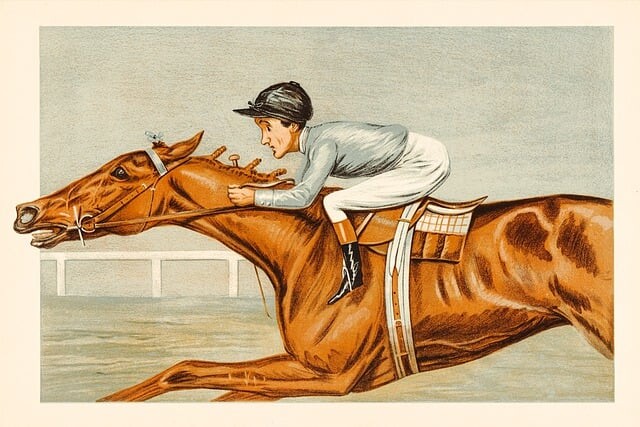 The short answer is no, she hasn’t. Amanda Perret (née Harwood) does, in fact, have two Group 1 victories to her name, but both came at Longchamp in Paris, France and both were provided by the Grand Lodge colt Indian Lodge. A top-class miler, Indian Lodge won the Prix du Moulin de Longchamp on September 3, 2000 and, dropped back to seven furlongs, the Prix de la Foret on October 15, 2000.
The short answer is no, she hasn’t. Amanda Perret (née Harwood) does, in fact, have two Group 1 victories to her name, but both came at Longchamp in Paris, France and both were provided by the Grand Lodge colt Indian Lodge. A top-class miler, Indian Lodge won the Prix du Moulin de Longchamp on September 3, 2000 and, dropped back to seven furlongs, the Prix de la Foret on October 15, 2000.
On British soil, Perret has saddled five Group 2 winners, namely the aforementioned Indian Lodge in the Sandown Mile in 2000, Tillerman in the Celebration Mile at Goodwood in 2002, Baron’s Pit in the Diadem Stakes at Newmarket in 2005, Tungsten Strike in the Henry II Stakes at Sandown in 2006 and, much more recently, Lavender’s Blue, in the Celebration Mile, again, in 2021. She is based at at Coombleands Stables in Pulborough, West Sussex, from whence her father, Guy Harwood, sent out 30 Group 1 winners, not least one of the best colts since World War II, Dancing Brave.
Assisted by her husband, former jockey Mark, Perrett took over the licence at Coombelands following the retirement of her father at the end of the 1996 Flat season. In late 2021, alongside her sister Lucinda, who is married to jockey Jim Crowley, she became a partner in Coombeland Equestrian, founded 15 years earlier by their sister Gaye, who tragically died in a road accident in 2019. In 2924 so far, she has sent out fewer runners (65, at the time of writing) than in any other full season of her training career.
 In short, John Durkan was a successful amateur rider and, subsequently, assistant trainer to Oliver Sherwood and John Gosden, who died of leukaemia in January 1998, aged 30. He is commemorated by the John Durkan Memorial Chase, run at Punchestown in December and thus renamed in the year of his death.
In short, John Durkan was a successful amateur rider and, subsequently, assistant trainer to Oliver Sherwood and John Gosden, who died of leukaemia in January 1998, aged 30. He is commemorated by the John Durkan Memorial Chase, run at Punchestown in December and thus renamed in the year of his death. By way of testament to the perils of National Hunt racing, at the time of writing, pioneering jockey
By way of testament to the perils of National Hunt racing, at the time of writing, pioneering jockey  To anyone with even a passing interest in horse racing, Lanfranco “Frankie” Dettori requires little or no introduction. Born in Milan, Italy, on 15 December 1970, Dettori rode his first winner on British soil, Lizzy Hare, trained by compatriot Luca Cumani, at Goodwood on June 7, 1987, as a 16-year-old apprentice and the rest, as they say, is history.
To anyone with even a passing interest in horse racing, Lanfranco “Frankie” Dettori requires little or no introduction. Born in Milan, Italy, on 15 December 1970, Dettori rode his first winner on British soil, Lizzy Hare, trained by compatriot Luca Cumani, at Goodwood on June 7, 1987, as a 16-year-old apprentice and the rest, as they say, is history.